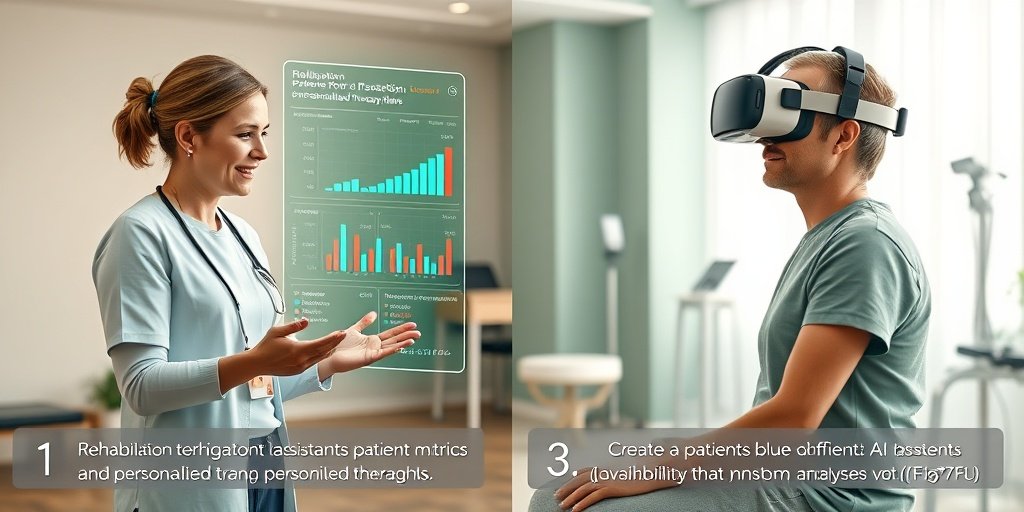⚡ Quick Summary
This narrative review evaluates the role of ChatGPT in rehabilitation medicine, highlighting its promising applications alongside significant challenges. While it shows potential in structured tasks, issues such as inconsistent performance and ethical implications must be addressed for effective integration.
🔍 Key Details
- 📊 Focus: Applications of ChatGPT in rehabilitation medicine
- 🧩 Limitations: Inconsistent performance, limited adaptability, and safety concerns
- ⚙️ Innovations: Multi-agent systems for improved accuracy
- 🏆 Key Findings: Need for professional oversight and ethical considerations
🔑 Key Takeaways
- 🤖 ChatGPT is a sophisticated AI language model with applications in healthcare.
- 💡 Performance in structured tasks is promising but inconsistent in complex scenarios.
- 🌍 Regional adaptability remains a challenge for effective implementation.
- 🔒 Data security and ethical implications are crucial considerations.
- 🛠️ Multi-agent systems may enhance accuracy and interpretability.
- 👩⚕️ Professional oversight is essential for safe integration into rehabilitation practices.
- 📈 Ongoing evolution of AI technologies necessitates continuous evaluation.
- 📚 Study published in Front Digit Health, 2025.

📚 Background
The integration of artificial intelligence in healthcare has the potential to transform various fields, including rehabilitation medicine. As AI technologies like ChatGPT evolve, understanding their capabilities and limitations becomes essential for healthcare professionals aiming to enhance patient care while ensuring safety and ethical standards.
🗒️ Study
This narrative review synthesizes findings from multiple studies to evaluate the current applications of ChatGPT in rehabilitation medicine. The authors, including Luo M and colleagues, aim to provide insights into both the promising aspects and the significant challenges that accompany the use of AI in clinical settings.
📈 Results
The review indicates that while ChatGPT demonstrates promising performance in structured tasks and basic medical guidance, it faces challenges such as inconsistent performance in complex clinical scenarios and limited regional adaptability. Additionally, concerns regarding data security and ethical implications are highlighted as critical factors that need to be addressed.
🌍 Impact and Implications
The findings of this review underscore the need for a balanced approach to integrating AI technologies like ChatGPT into rehabilitation medicine. By addressing the identified limitations and ensuring appropriate professional oversight, healthcare providers can harness the potential of AI to improve patient outcomes while maintaining clinical safety and effectiveness.
🔮 Conclusion
This narrative review emphasizes the transformative potential of AI in rehabilitation medicine, particularly through tools like ChatGPT. However, it also calls for careful consideration of the associated challenges, including ethical implications and the need for professional oversight. As AI continues to evolve, ongoing research and dialogue will be essential to navigate its integration into clinical practice effectively.
💬 Your comments
What are your thoughts on the integration of AI in rehabilitation medicine? We invite you to share your insights and engage in a discussion! 💬 Leave your comments below or connect with us on social media:
Evaluating the role of ChatGPT in rehabilitation medicine: a narrative review.
Abstract
Chat Generative Pretrained Transformer (ChatGPT) has emerged as a sophisticated artificial intelligence (AI) language model in healthcare. This narrative review examines ChatGPT’s current applications and limitations in rehabilitation medicine through analysing multiple studies. While demonstrating promising performance in structured tasks and basic medical guidance, significant challenges persist. These include inconsistent performance in complex clinical scenarios, limited regional adaptability, poor reference reliability, and inadequate safety considerations for special populations. Although innovative approaches like multi-agent systems show potential improvements in accuracy and interpretability, concerns regarding clinical responsibility, data security, and ethical implications remain crucial. As ChatGPT continues to evolve, its optimal integration into rehabilitation practice requires careful consideration of these limitations and appropriate professional oversight. This review aims to provide insights for healthcare professionals and policymakers in navigating the implementation of AI assistance in rehabilitation medicine, emphasizing the need for balanced integration while maintaining clinical safety and effectiveness.
Author: [‘Luo M’, ‘Duan Z’, ‘Gao J’, ‘Sun Y’, ‘Chen L’, ‘Feng X’]
Journal: Front Digit Health
Citation: Luo M, et al. Evaluating the role of ChatGPT in rehabilitation medicine: a narrative review. Evaluating the role of ChatGPT in rehabilitation medicine: a narrative review. 2025; 7:1618510. doi: 10.3389/fdgth.2025.1618510